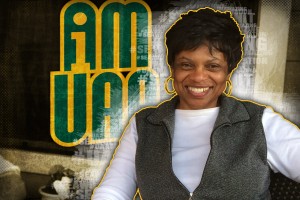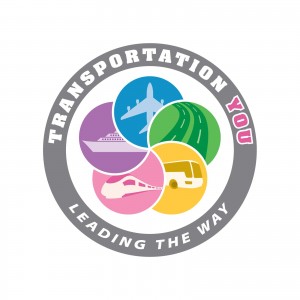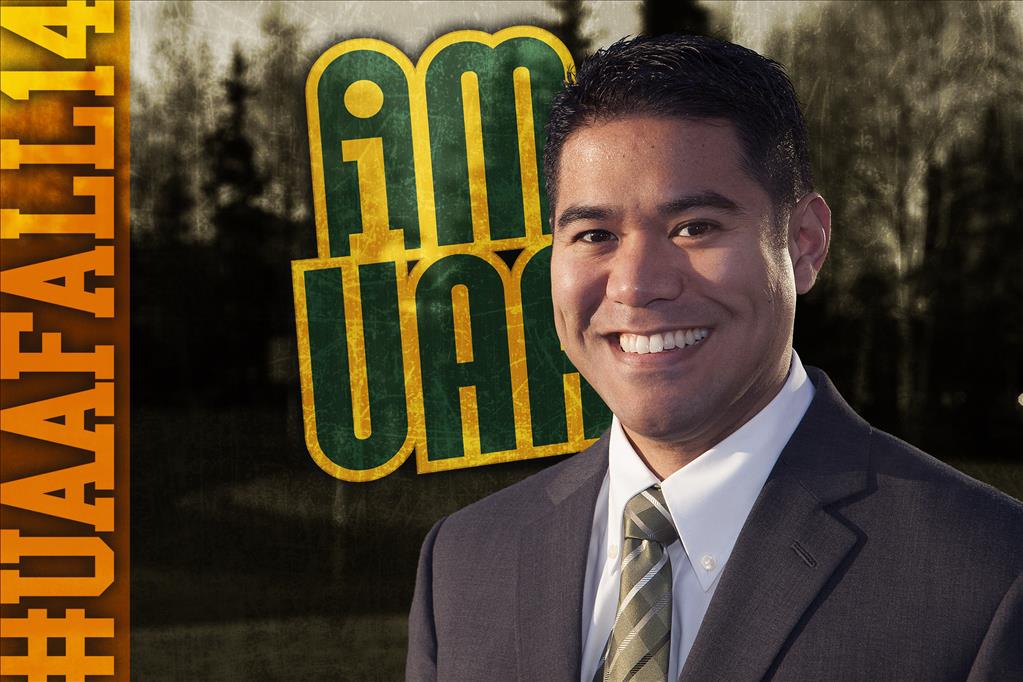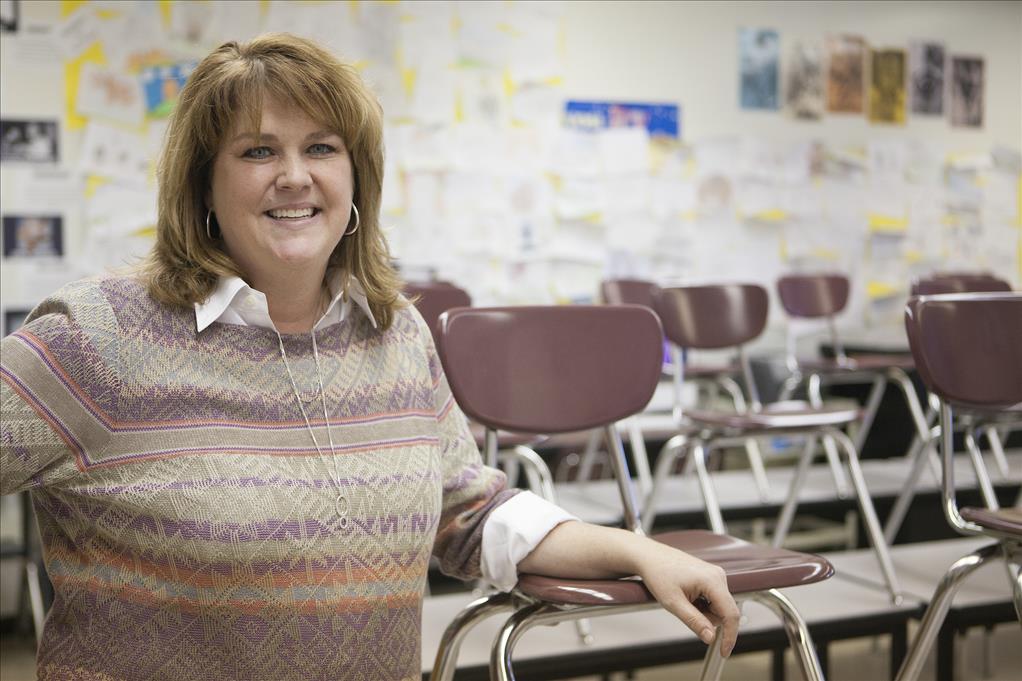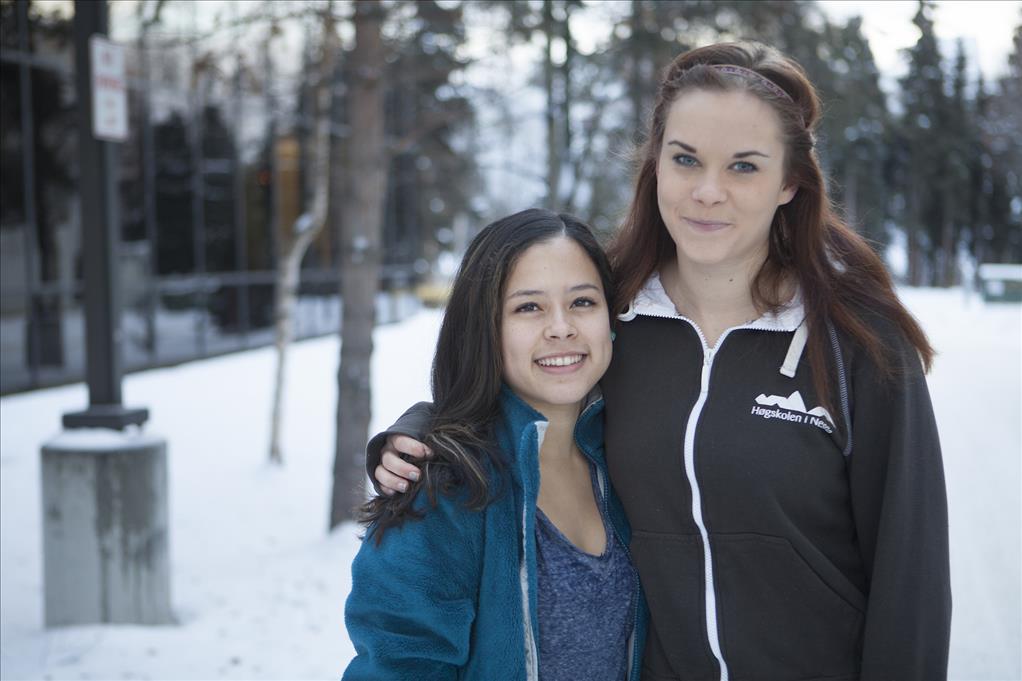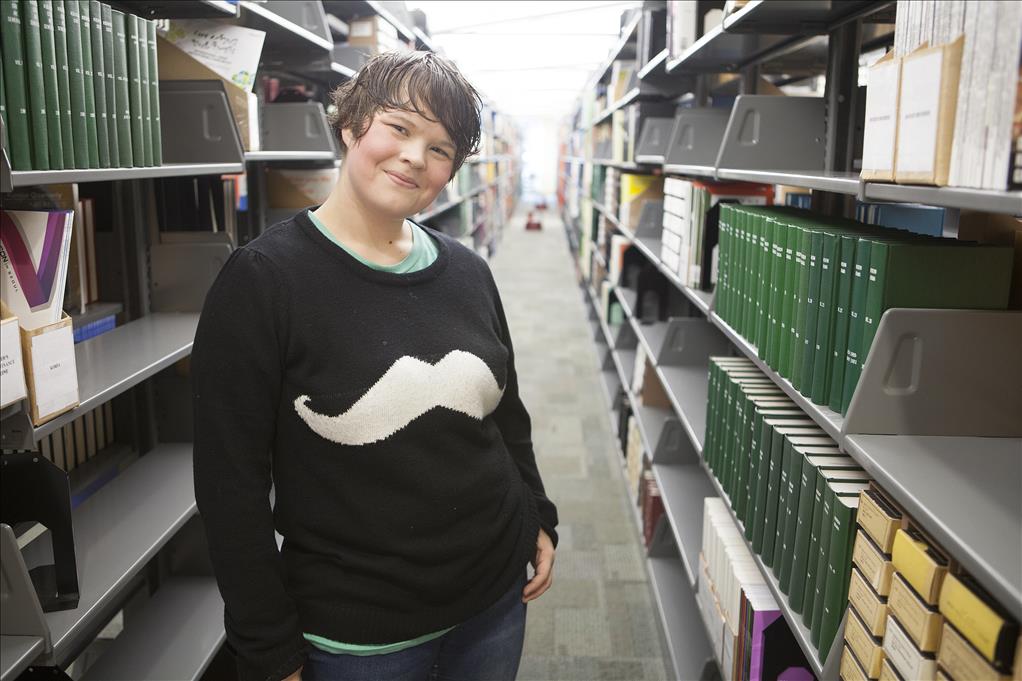Alumni Spotlight: LaVerne Francis Reid
by J. Besl |
B.B.A. '77
Manager, FAA New England Region, Retired
Hometown: San Angelo, Texas
Fun Fact: Purchasing aircraft was one of her many roles over the years with the FAA.
LaVerne Francis (Collins) Reid has a story wrapped up in American history. She grew up in central Texas, graduating high school a year after LBJ signed the Civil Rights Act. She soon became a teenage wife and mother in a very limited town and watched as her husband went off to the Vietnam War. When he was later stationed in Alaska, the family relocated to the North before the state was even 10 years old.
It's a small beginning for a remarkable woman who later received a Presidential appointment and broke through race and gender barriers throughout her career.
The long road to graduation
All told, LaVerne spent 11 years at five universities before earning her bachelor's degree — the last nine years she completed at UAA. For nearly a decade, LaVerne plowed through a stacked schedule, studying on her lunch breaks at work, heading home to see her family, and leaving for night classes after her kids were in bed. She cited the flexibility of UAA scheduling for non-traditional students as "one of the things [she] admired about UAA."
"Most of my time in Alaska I was balancing being a wife, a mother, and a student, with a career. I've counseled a lot of young people, especially young woman, and said 'let me tell you the way not to do it,'" she laughed. "And that's why it took me 11 years — I was committed to all of those."
"It took 11 years but I do not regret a day of it."
To add to her already-overflowing plate, LaVerne decided to join a group of 15 women and create the North to the Future chapter of Business and Professional Women (BPW) in Anchorage. BPW is an international organization founded in 1919 that supports women in the workplace through research, scholarships and advocacy. "I had a very limited amount of discretionary time and I needed an organization that could substitute for joining multiple organizations," LaVerne said of her motivation to start the chapter. "I could become more comfortable in my communications, it was a safe area to try leadership skills, program management skills, and it supplemented the education I got at UAA."
Additionally, BPW provided an outlet for causes she strongly believed in, like the wage gap between men and women. "That was an issue in the 1970s when it was 50 cents to a dollar. This is almost 50 years later and it's still an issue," she said. "I would like to say that those issues no longer exist, but they do." In fact, President Obama even addressed the unresolved issue in his weekly address earlier this month in 2014.
The North to the Future BPW chapter catered to women in similarly busy situations, initially meeting as a Saturday morning breakfast club. As time went on, LaVerne accepted more responsibility and began putting her UAA education to work. "I felt very fortunate that the education [at UAA] provided a lot of tools and knowledge ... I didn't necessarily have a level of responsibility in my job at the time to apply those tools, but I could apply it in program planning, managing volunteers and managing budgets in the BPW organization."
Throughout her tireless years in Alaska working, studying and leading BPW, LaVerne's focus had always been her family, but her life took a few swift and tragic turns near the end of her time at UAA. In 1975, she separated from her husband. One year later, in 1976, her two sons — her only children — died in an automobile accident. "My world began to crumble," she reflected. "Diving into my work and serving the community and relying on that legacy of faith, focus and life-long learning held me together in a very tough time."
In 1977, she graduated.
Suddenly, this self-professed shy small town girl found herself completely independent for the first time in her life.
Talkin' Texas with the president
LaVerne originally joined BPW to find a supportive group for personal and professional development, but her involvement evolved over the years. After serving as president of her local chapter, she moved on to serve as BPW/Alaska president in 1979. A decade later, she was elected president of BPW/USA — the nationwide organization. She served as the first African-American president in the history of both BPW/USA and chaired the Board of Trustees for the BPW Foundation.
As her prestige in the organization grew, so did her professional network. "That's when I had an opportunity to meet the president," she stated matter-of-factly.
A few years before taking the helm at BPW, she had the chance to meet President George H. W. Bush on his campaign trail. He attended the BPW national conference in the summer of 1988 and the two struck up a conversation over common grounds. "I was born in San Angelo, he had worked in Midland, and we talked about West Texas," she said.
The following year, both were in D.C. — Bush in the White House and LaVerne on Capitol Hill lobbying directly to Congress members on behalf of BPW. She kept in touch with Bush and received a Presidential appointment to the National Advisory Council in 1989, serving in the U.S. Small Business Administration.
"That was really a very rewarding experience," she reflected. "I was on the advisory board for two years and one of the major accomplishments that I look back on fondly was setting up the groundwork for the microloan program for people who were starting up small businesses in their homes." Through her work on the Council, LaVerne helped aspiring business owners, many of them women, gain access to small funds to start their cottage industries.
Climbing the ladder at FAA
Meanwhile, throughout all this, LaVerne was also building quite a mighty career. She started at the FAA in 1969 as a low-level administrative clerk in the real estate department. "It was the beginning of a very interesting journey," she said.
Using her UAA education and BPW skill set, she started rising through the ranks. "I learned a lot about management and business principles that I was able to apply to BPW [and] on the job," she said, "and I was able to progress up the ladder as my managers recognized the work I was doing. All of that goes back to what I had learned at UAA." Within the FAA, she moved up (and around) in the organization — from realty specialist to air traffic controller in Anchorage, then placements in D.C., Seattle and Oklahoma City before landing in the Memphis district office, managing airport development in Tennessee and Kentucky. By the time she retired in 2011, she was the federal manager of airports across the entire six-state New England region.
"Education was truly foundational for me. I can't say it was any one class that prepared me, but the collection of experiences and curriculum gave such confidence to a girl who was very shy," she said of her time at UAA. "It gave me a can-do attitude ... that there were solutions and creative ways to solve problems. The quality of the instructors gives you the mindset that you can work in abundance instead of scarcity. There are answers out there.
Rewirement party
After a whirlwind career with the FAA that took her literally from coast to coast, LaVerne is happily retired back in Texas, where she last lived in 1968. LaVerne is the third child out of six, and the last one to adopt an address in the Lone Star State. After decades away, all her siblings are still within a few hours of her home and she's enjoying quality time with her family — especially Robert Reid, her husband of 26 years, and her mother, who turns 90 this year.
It sounds like an idyllic retirement but, for someone like LaVerne, retirement has a very different meaning. "I like to say that I'm not retired, I'm rewired," she said. After leaving the FAA, she now sits on the national board for the Women in Transportation Foundation, issuing scholarships and advocating for women's engagement in the transportation industry. She also chaired an inaugural seminar in D.C. bringing young girls from across the country to the capitol to experience careers in transportation. The seminar, called 'Transportation YOU," is now an annual partnership between the Women in Transportation Foundation and the Department of Transportation. "It's one of the things I'm most excited about," LaVerne said of the workshop. "We've never had anything like this before and it was exciting to chair the first one and show it can happen. It was just wonderful to see the possibilities though the eyes of these young women and see the excitement about their future careers."
Leaving the door open
Although she's a remarkable woman with a remarkable story, LaVerne is quick to add that many of her barrier-breaking accomplishments were incidental. "It has to do with the nature of the time I entered my career," she said of the barriers she faced as an African-American career woman. "I don't take it for granted that some doors were opened and some programs made it possible for me to walk through. There are doors that were closed, but that's OK. I didn't worry about those. Mostly I moved around them."
LaVerne recently observed an event at the LBJ Presidential Library in Austin celebrating the 50th anniversary of the Civil Rights Act. President Johnson signed the bill into law on July 2, 1964, right before LaVerne's senior year of high school. "Because of that time frame, it did result in me being first many times," she said. But it was never her intent to set the new standards. "It was more accepting that one woman wanted to do one job and was confident she had solutions for the problems that needed to be addressed," she said. "And if I was the first, well OK. That's fine but I still have a job to do and I'm going to do it."
When she relocated to Memphis — a crucial transportation hub that sees 15 percent of the world's air cargo each year — she was the first and only black female in the management office. That was in 1995. "When I left 10 years later, there were far more minorities on municipal airport boards and with the state aviation agencies and organizations that we interacted with," she said. "I've always felt that I let my reputation speak for itself. If it helps to dispel any stereotypes or promote actions, then so be it."
Regarding her role as the first African-American president of BPW, 80 years after the organization started, she can't help but admit a sense of pride. "Was I the only person ever capable of doing it? No!" she laughed. "I know that's not the case. But I saw opportunity, felt I had the foundation and I did it.
"I'd like to think that I left doors open and not closed."
 "Alumni Spotlight: LaVerne Francis Reid" is licensed under a Creative Commons Attribution-NonCommercial 4.0 International License.
"Alumni Spotlight: LaVerne Francis Reid" is licensed under a Creative Commons Attribution-NonCommercial 4.0 International License.










